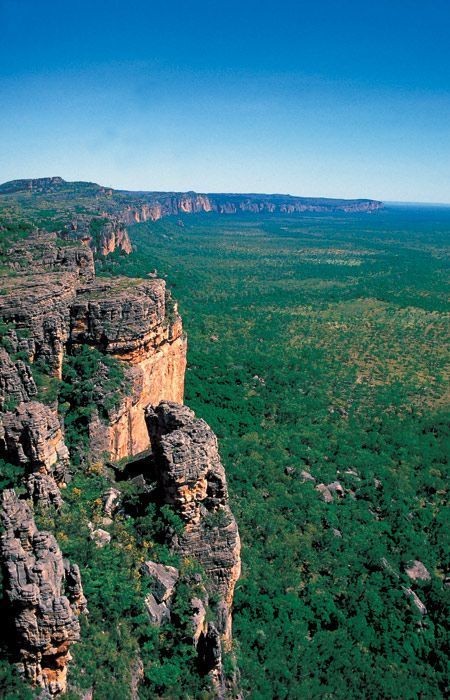
Hooked on the Thrill: Fishing Competitions in Galiwin'ku, Northern Territory
Fishing competitions in Galiwin'ku offer a vibrant blend of local culture and raw coastal challenge. With abundant fish species and a strong connection to Aboriginal traditions, these events position anglers to engage directly with one of Australia's most dynamic marine environments.
Plan for Tides and Weather
Check tide charts and weather forecasts carefully, as changing currents in the Arafura Sea can significantly affect fishing conditions and boat safety.
Use Appropriate Fishing Gear
Bring tackle suited for saltwater species like barramundi and queenfish, including strong lines, corrosion-resistant hooks, and suitable bait.
Stay Hydrated and Protected
The Northern Territory sun is intense—carry ample water, wear UV-protective clothing, a wide-brimmed hat, and apply reef-safe sunscreen.
Respect Local Regulations
Observe catch limits and practice catch and release where required to support sustainable fishing and local conservation efforts.
Hooked on the Thrill: Fishing Competitions in Galiwin'ku, Northern Territory
Fishing competitions in Galiwin'ku, located on Elcho Island in the Northern Territory, bring an electrifying mix of local culture, fierce coastal currents, and abundant marine life. These events draw anglers from nearby communities and beyond, all eager to test their skills against fish species that challenge even the most experienced. The saltwater surrounding Galiwin'ku vigorously pushes and pulls, daring every line to dance in the ocean’s raw rhythm.
Competitions typically focus on species like barramundi, queenfish, and trevally—fish known for their explosive strikes and stubborn holds. As competitors cast from sturdy boats or the rocky shoreline, they engage directly with a sea that is both generous and unpredictable. The preparation is practical and precise: stable tackle, sharp hooks, and a keen awareness of tides and weather conditions all factor heavily into success.
Organizers often schedule these events in the dry season between May and September, when the waters calm and fishing conditions stabilize. Community gatherings flare up around these competitions with local vendors offering fresh-caught seafood, arts, and stories. This event is not just a fishing contest; it’s an invitation to witness the blend of Aboriginal traditions and contemporary sport, powered by the fierce pulse of the ocean.
Accessibility remains a practical concern. Galiwin'ku’s remoteness requires dedicated planning: flights from Darwin or charter boats are common means of arrival. Accommodations are basic but welcoming, encouraging visitors to focus on the raw fishing experience rather than luxury. Proper hydration, sun protection, and insect repellent are essentials for spending long hours outside.
Fishing in this environment calls for respect—local fishery regulations ensure sustainability and maintain ecological balance. Ethical catch and release practices are encouraged alongside contests, aiming to protect the island’s living bounty. Beyond the competition, anglers find rewarding experiences in the landscape’s natural rhythm: the sea breeze, the sun’s climb and fall, and the splash of a line snagging a prize catch.
For adventurers seeking more than a casual outing, these fishing competitions offer a measured challenge. The currents, often capricious, demand steady hands and sharp eyes. The environment is fierce but not hostile, rewarded to those who approach with knowledge and care. In Galiwin'ku, fishing competitions are less a contest against nature and more a dialogue with it—fiercely alive and endlessly compelling.
Nearby Trips
All Adventures
Boat Charters
Water Activities
Adventures near Galiwin'ku, Northern Territory
Discover the unique and memorable adventures that make Galiwin'ku, Northern Territory special.
Frequently Asked Questions
When do fishing competitions typically take place in Galiwin'ku?
Most competitions occur in the dry season from May to September, coinciding with calmer seas and more predictable weather, providing safer and more productive fishing conditions.
Are there local rules for fishing during these competitions?
Yes, local fisheries enforce catch limits and species protections to sustain fish populations. Many competitions also emphasize catch and release, particularly for popular game fish like barramundi.
What species can anglers expect to catch?
Barramundi, queenfish, trevally, mangrove jack, and threadfin salmon are common targets. Each offers a different style of fight and requires specific techniques.
How accessible is Galiwin'ku for travelers?
Galiwin'ku is remote, primarily accessible by air from Darwin or by boat. Visitors should plan logistics well in advance and consider staying in nearby Nhulunbuy for additional services.
What safety measures should anglers take?
Be aware of tides and currents, wear a life jacket when on boats, protect against sun exposure, and stay hydrated. Local guides and organizers usually provide safety briefings.
Can visitors experience local culture during competitions?
Absolutely. These events often include community celebrations, traditional storytelling, and local cuisine, providing a meaningful connection beyond the fishing itself.
Recommended Gear
Saltwater Fishing Rod and Reel
Durable equipment designed to withstand salt corrosion and strong fish pulls.
UV-Protective Clothing
Protects skin from intense sun exposure during prolonged outdoor activity.
Waterproof Tackle Box
Keeps hooks, lures, and lines organized and dry in humid or wet conditions.
Hydration Pack or Water Bottles
Maintains hydration during long hours of fishing under the tropical sun.
Local Insights
Hidden Gems
- "Yolngu art installations near the competition venues offering cultural insight"
- "Secluded mangrove channels where rare species gather off the beaten path"
Wildlife
- "Saltwater crocodiles inhabit nearby estuaries—exercise caution when near shorelines"
- "Migratory shorebirds frequent local mudflats, especially during the wet season"
History
"Galiwin'ku is one of the largest Aboriginal communities in Arnhem Land, rich in Yolngu culture. Fishing is deeply embedded in traditional practices, with techniques and knowledge handed down across generations."
